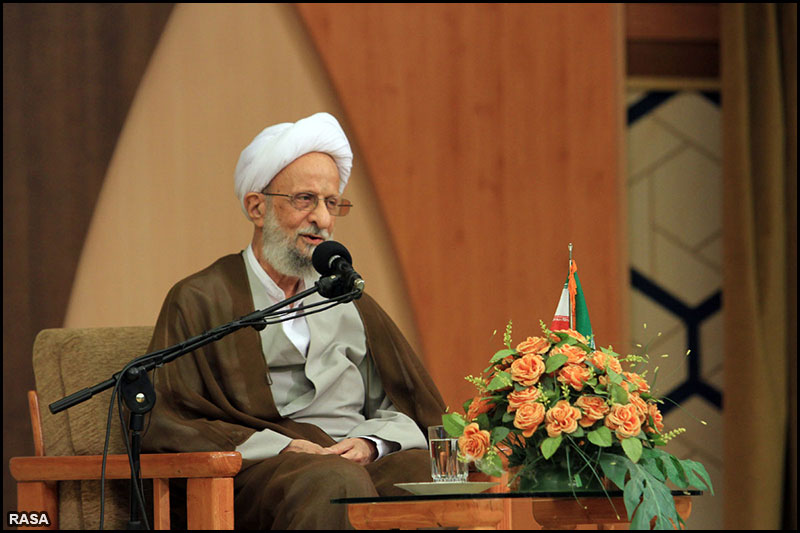
RNA – Ayatollah Mohammad-Taqi Mesbah-Yazdi, the director of the Imam Khomeini (RA) Education and Research Institute, has met with an organization of those who seek to “enjoin the good and forbid the wrong” in the holy city of Qom.
His Eminence told the group that enjoining the good and forbidding the wrong are two of the branches of the Islamic faith. It is a general duty on all Muslims to encourage others to enjoin appropriate behaviours and acts and avoid that which is harmful to themselves and to society.
Ayatollah Mesbah-Yazdi in his description of enjoining the good and forbidding the wrong said: “When a government based on true Islamic values is established and the people are faithful to the commandments of God, and perform few greater sins, it should be noted that public scrutiny will cause even fewer violations and prevent the spread of sin. Thus, this [Quranic] command is a essential part of religion and is necessary upon all.”
In an explanation of the statement of Imam Husayn (A) where the Imam (A) stated that he rose up against Yazid ibn Mu’awiyah to enjoin the good and forbid the wrong, Ayatollah Mesbah-Yazdi said: “It was expected to all that the movement of Imam Husayn (A) would not result in an obviously victorious outcome and that the army of Yazid would martyr the Imam (A). More than anyone else, Imam Husayn (A) knew this. His companions such as Muhammad ibn al-Hanifiyah and [Abdullah] ibn Abbas also knew that Imam Husayn’s (A) uprising would end in the Imam’s martyrdom.”
“Sometimes enjoining the good applies to jihad, uprising and would result in the killing of those who seek to enjoin the good and forbid the wrong. An example of this in our era is the uprising of Imam Khomeini (RA). He knew that his uprising could have dangerous consequences. He himself was imprisoned and persecuted and his followers were imprisoned and killed. However, this did not stop him from rising up,” Ayatollah Mesbah-Yazdi stated, according to Rasa News Agency.
“We are living during a time when Western culture and atheism are becoming common in Islamic societies and sometimes when enjoining the good or forbidding the wrong you will be questioned by the person. ‘What does this have to do with me? I am free and I can do whatever I want!’ Sometimes people think that if someone does not act rudely and does not attack them, than it has no relevance to them and that forbidding the wrong is not imperative on them. In recent years, we have seen examples where someone has killed someone who has advised them from committing a wrong act,” he added.
Ayatollah Mesbah-Yazdi said that enjoining the good and forbidding the wrong should be tailored to the circumstances of time and place, and that experts and psychologists should research various ways of enjoining the good and forbidding the evil so that everyone can choose the right manner and thereby reduce sins among society.
He also insisted enjoining the good and forbidding the evil should not be in a manner which causes tension, conflict and division but in a method of love, mutual respect and compassion and with the intention which shows that you truly want to guide the individual and not that you are trying to make it seem that you are better than him or her.
111/112